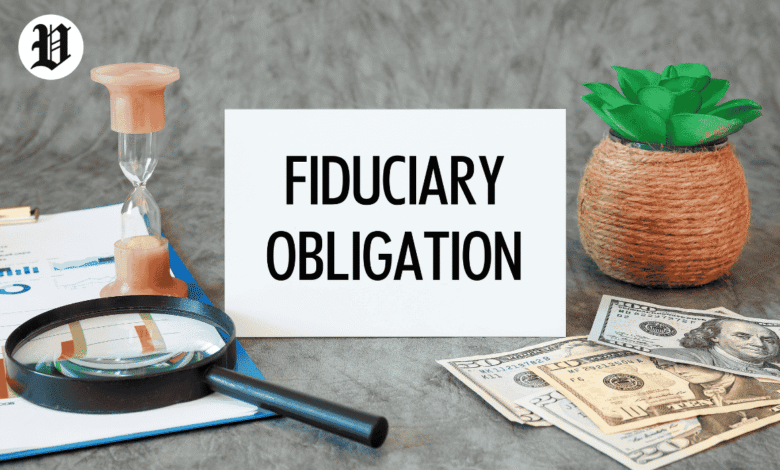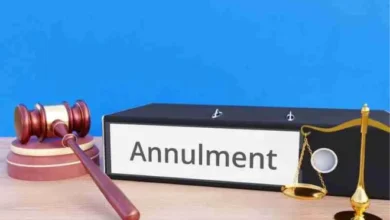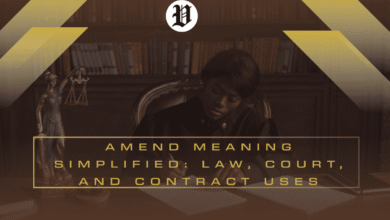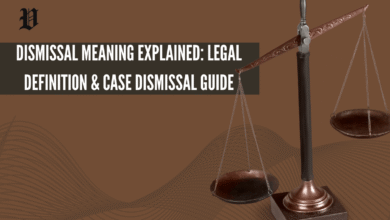Fiduciary Meaning, Legal Definition, and Duties Explained

Have you ever tossed around the word “fiduciary” and scratched your head wondering what it actually stands for? It’s one of those terms that sounds stuffy and legal, but it pops up in everyday situations more than you’d think. Like when you’re trusting someone with your hard-earned money or family heirlooms— that’s fiduciary territory right there.
Introduction to Fiduciary
Simply put, a fiduciary is someone who takes on the responsibility of looking after another person’s interests, whether that’s handling cash, property, or big decisions. It’s like being the captain of a ship where the crew’s well-being comes first, no matter what. You can’t just do whatever suits you; there’s a real commitment involved.
This concept shows up in all sorts of places, from managing retirement funds to sorting out estates after someone passes. It keeps things on the up and up, making sure no one gets taken advantage of in uneven power dynamics. Without it, a lot of our systems would fall into chaos pretty quick.
Fiduciary Meaning and Origin
Digging back, “fiduciary” comes from the Latin word “fiducia,” which boils down to trust or faith. In ancient Rome, folks would set up deals where one guy held onto stuff for someone else, all based on that mutual confidence that everything would be handled squarely.
Fast forward to now, and the fiduciary meaning is all about being dependable and putting ethics front and center. It’s handling things in trust—money, assets, or even guidance. That old Latin root reminds us that at the heart of it is belief in someone’s integrity; lose that, and the whole deal unravels.
As time marched on, this idea wove its way into English laws and spread out, influencing how we think about duties in today’s world. It’s a nod to the fact that some connections go beyond casual agreements—they’re rooted in deep moral and legal ground.
Fiduciary Legal Definition
Legally speaking, a fiduciary is a person or group that’s bound by law to act solely for the benefit of someone else, often called the principal or beneficiary. This isn’t something you can shrug off; courts can step in and enforce it. The key is always putting that other person’s needs ahead of your own, steering clear of any shady conflicts, and operating with total honesty.
Judges examine the setup of the relationship to see if these duties kick in. It might not be written out explicitly in a deal; sometimes it’s just understood from the roles at play. For example, if you’re overseeing someone’s investments, the law pretty much assumes you’re on the hook as a fiduciary unless you prove otherwise.
While it can differ a bit depending on where you are, the essence is loyalty and diligence. In places like the U.S., it’s built on longstanding common law traditions, with extra rules for things like pension plans. Messing it up can mean big trouble, from court battles to fines.
Fiduciary Duty Explained
Fiduciary duty is basically the playbook of rules that fiduciaries have to follow. It’s your guide to doing right by someone. The big ones are loyalty—meaning no profiting off the side—and care, which demands smart, thoughtful choices.
Add in good faith for straight-up honesty, no sneaky agendas. Keep secrets under wraps with confidentiality, and stick to the plan with obedience. These rules turn the fiduciary into a true protector, not someone out for themselves.
To break it down easy: Picture borrowing a friend’s prized guitar. You don’t bash it around or loan it out—you treat it with kid gloves, better than your own stuff. That’s the vibe fiduciary duty demands.
People also see: Immigration Law Updates 2025: What’s Changing and Why It Matters
Fiduciary Relationships
These relationships crop up when one side depends on the other’s know-how or authority. Think trustees overseeing goodies for heirs, guardians watching over kids or folks who can’t manage on their own, or agents stepping in for their bosses.
Financial planners fit the bill too, dishing out investment tips. Lawyers and their clients? That’s a prime example, where counsel has to zero in on what’s best for the client. Company bigwigs owe the same to stockholders, making sure boardroom calls serve the owners.
They’re not lightweight ties. They call for openness and being answerable. If things go south on the trust front, the law has ways to fix it and make things right.
Fiduciary Trust & Fiduciaries Meaning in Real-World Scenarios
A fiduciary trust is when you legally park assets with a trustee for someone else’s gain, capturing what fiduciaries really mean: reliable oversight. In daily life, this happens in wills, where parents lock away funds for their children to use sensibly down the line.
Imagine handing off a family company across generations. The person in charge acts as fiduciary, divvying up fairly. Or pensions: those running the show have to invest wisely, dodging wild gambles that could erase years of savings.
In money matters, fiduciaries shine in advisor setups. They can’t hawk junk just for a kickback if it hurts you. These real-life spots show how the role stops foul play, paving the way for solid futures.
I recall a story about a widow leaning on her advisor post-husband’s death. He could’ve nudged her into pricey picks that lined his pockets, but he went with solid, affordable ones that built her security. That’s trust doing its job.
Synonyms and Related Terms
Need another term for fiduciary? Go with trustee, guardian, or steward—they all echo that sense of handed-over duty. Fiduciality isn’t tossed around much, but it ties into being faithful in tasks.
Linked ideas include legal duty, which crosses paths but doesn’t always hit the same intensity. Agent works too, especially in biz dealings. These words paint the picture of intertwined responsibilities in trust spots.
Just don’t mix them up with everyday helpers; fiduciaries pack a punchier legal punch. Getting these synonyms straight clears up chats in legal and money circles.
Common Misspellings and How to Spell Fiduciary
Fiduciary’s spelling stumps a lot of people—you’ll spot “feduciary” or “fidicuary” in online hunts. Others go for “fuduciary” or “fiduciery” when digging into this stuff.
Right way? F-I-D-U-C-I-A-R-Y. Split it: “fid” from the Latin, “uciary” for the trust bit. Tying it to the origin dodges those errors.
These flubs usually come from sounding it out wrong. When penning important papers, check twice—a mistake can ding your rep.
Why Fiduciary Duty Matters in Law & Finance
This duty’s a big deal because it shields folks from getting played. In courts, it keeps fairness alive; in banking, it guards your bucks. Skip it, and self-serving messes could explode, tanking everyone’s faith.
Recall the big crash around 2008—plenty pointed fingers at weak fiduciary checks for fueling dumb risks. It counts because slip-ups spark huge hits, legal fights, and trashed names.
Flip side, solid duties forge strong bonds. People stay loyal to pros who put them first, and firms boom when leaders stay true.
Modern Applications: Corporate Boards, Lawyers, Investment Advisors
These days, company boards get grilled on fiduciary stuff. Directors juggle hot topics like environmental pushes, questioning if they’re straying from core duties. They weigh owner perks against bigger picture staying power.
Attorneys live this every day, giving advice without side hustles. Spill beans wrongly, and it’s goodbye license.
Investment gurus, per regs, spill on clashes and suggest fitting choices. With apps and bots in the mix, even code has to play ethical.
It all shifts with times. Boards push clear merger talks; advisors ensure tech tools don’t cut corners.
Fiduciary vs. Trustee vs. Agent
| Role | Responsibilities | Key Differences |
| Fiduciary | Acts in best interest of beneficiary, broad duties like loyalty and care | Umbrella term; applies to various relationships, not always asset-specific |
| Trustee | Manages trust assets for beneficiaries, legal ownership but for others’ benefit | Specific to trusts; holds title to property |
| Agent | Acts on behalf of principal in specific tasks, like real estate deals | Authority from principal; can be temporary, less ongoing than trustee |
Common Fiduciary Duties
| Duty | Legal Explanation |
| Duty of Care | Make informed, prudent decisions; research and avoid negligence |
| Duty of Loyalty | Prioritize beneficiary’s interests; no self-dealing or conflicts |
| Duty of Good Faith | Act honestly and transparently; disclose all relevant info |
| Duty of Confidentiality | Protect sensitive information from unauthorized disclosure |
| Duty of Obedience | Follow the terms of the agreement or law without deviation |
Practical Examples of Fiduciary Duty
To make it stick, here are some down-to-earth cases.
Take lawyers and clients. There was this attorney in a messy divorce who sneakily tipped off the other side for a bonus. Bam—lawsuit, payouts, and a suspended practice. It drives home that secrets stay secret, and focus stays sharp.
Or trustees and heirs: A trustee dumps trust money into a sketchy deal linked to their own gig. It tanks, heirs cry foul on carelessness, and courts make them pay up.
Corporate side: Remember that huge scandal with a energy giant hiding debts? Execs broke duties, company crashed, some did time. Lesson? Hide nothing.
Financial advisors: One sells overpriced funds for fat commissions, clients suffer, sue, and recoup. Regulators crack down hard now.
These aren’t outliers—they show the high stakes. A buddy of mine handled her aunt’s estate. She split everything evenly, but a relative griped about bias. Her detailed notes proved she did right, dodging drama.
See More: Pardon Meaning & Definition ExplainedFAQs
What is the definition of a fiduciary?
A fiduciary is a person or organization legally required to act in the best interest of another party, managing assets or decisions with trust and care.
What does the word fiduciary mean in law?
In law, fiduciary means someone bound by duties to prioritize another’s interests, often involving trust, loyalty, and ethical handling of affairs.
What is fiduciary duty and why is it important?
Fiduciary duty is the obligation to act loyally and carefully for a beneficiary. It’s vital to prevent abuse and maintain trust in professional relationships.
What are examples of fiduciaries?
Examples include trustees, lawyers, financial advisors, corporate directors, and guardians—all roles where one manages for another’s benefit.
What is a fiduciary trust?
A fiduciary trust is a legal arrangement where a trustee holds and manages assets for beneficiaries, upholding strict duties of care and loyalty.
How do you spell fiduciary?
It’s spelled F-I-D-U-C-I-A-R-Y. Common mix-ups like “fiducary” or “feduciary” often appear in searches, but stick to the correct version.
What is another word for fiduciary?
Synonyms include trustee, guardian, steward, or agent, depending on the context.
What happens if a fiduciary duty is breached?
Breaches can lead to lawsuits, financial penalties, removal from the role, and repayment of losses. Serious cases involve fines or even criminal charges.
What does fiducia mean in Latin?
Fiducia in Latin means trust, confidence, or reliance—the foundation of the modern fiduciary concept.
What is the legal definition of a fiduciary relationship?
It’s a bond where one party relies on another’s superior knowledge or position, imposing duties to act in the reliant party’s best interest without self-gain.
Wrapping this up, grasping what a fiduciary does can really help you handle those trust-heavy spots in life. Whether you’re picking one or stepping into the role, it’s that rock-solid trust that counts. Got your own tale or puzzle? See how these ideas fit your world—they’re closer than they seem.





One Comment